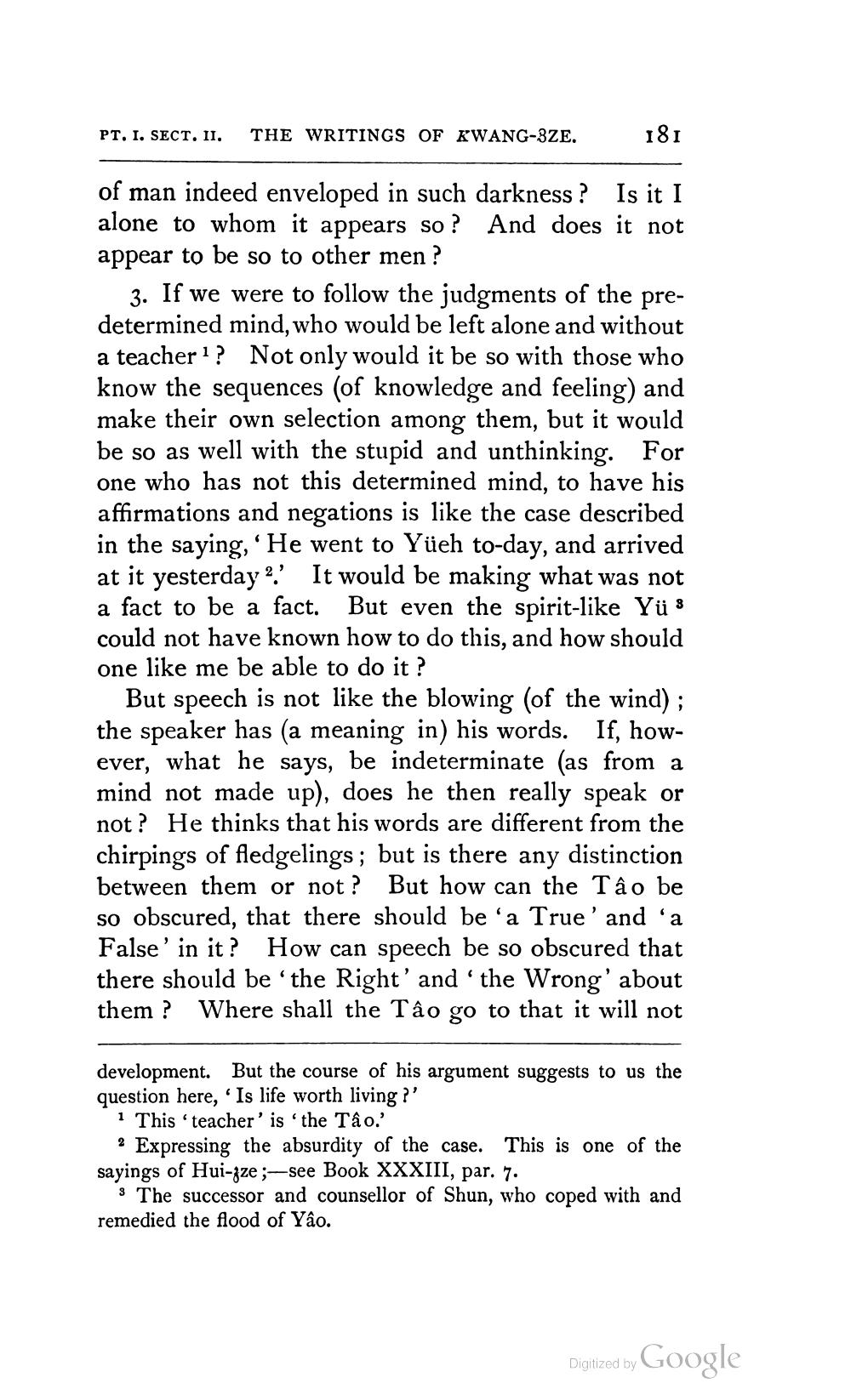________________
PT. I. SECT. II. THE WRITINGS OF KWANG-3ZE.
181
of man indeed enveloped in such darkness? Is it I alone to whom it appears so? And does it not appear to be so to other men?
3. If we were to follow the judgments of the predetermined mind, who would be left alone and without a teacher1? Not only would it be so with those who know the sequences (of knowledge and feeling) and make their own selection among them, but it would be so as well with the stupid and unthinking. For one who has not this determined mind, to have his affirmations and negations is like the case described in the saying, 'He went to Yüeh to-day, and arrived at it yesterday 2. It would be making what was not a fact to be a fact. But even the spirit-like Yü could not have known how to do this, and how should one like me be able to do it?
But speech is not like the blowing (of the wind); the speaker has (a meaning in) his words. If, however, what he says, be indeterminate (as from a mind not made up), does he then really speak or not? He thinks that his words are different from the chirpings of fledgelings; but is there any distinction between them or not? But how can the Tâo be so obscured, that there should be 'a True' and 'a False' in it? How can speech be so obscured that there should be 'the Right' and 'the Wrong' about them ? Where shall the Tâo go to that it will not
development. But the course of his argument suggests to us the question here, 'Is life worth living?'
1 This teacher' is the Tâo.'
2 Expressing the absurdity of the case. This is one of the sayings of Hui-zze;-see Book XXXIII, par. 7.
3 The successor and counsellor of Shun, who coped with and remedied the flood of Yâo.
Digitized by Google




